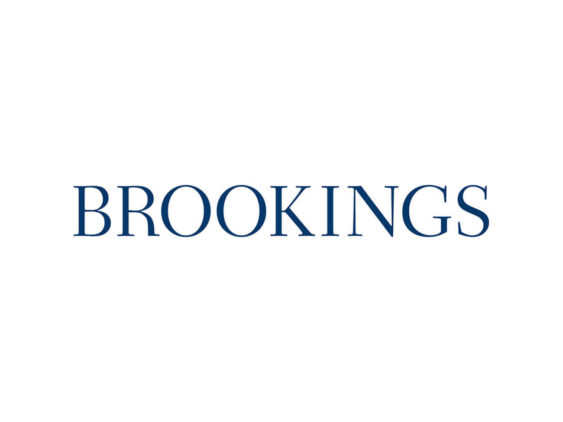Almost half of Fortune 500 companies were founded by American immigrants or their children
December 6, 2017
December 6, 2017

Economists disagree about a lot of things, but two areas—the importance of entrepreneurship to economic growth and job creation, and the outsized role that immigrants play in founding American companies—have reached broad consensus. And yet, immigration policy remains stalled at a time when the rate of business formation is near four-decade lows—presenting a major disconnect between economic and political realities.
As two critical immigration policy issues face Congress—the fate of 800,000 immigrants brought to the United States illegally as children (“DREAMers”), and the re-introduction of the bipartisan Startup Act, which among other things, provides 75,000 visas to entrepreneurs that come to this country to start high-potential companies—new evidence demonstrates yet again just how critical foreign-born entrepreneurs are to lasting economic prosperity in the United States.
The Center for American Entrepreneurship, a non-partisan policy and advocacy organization, published a study today on the founders of America’s most valuable companies—those in the Fortune 500. The results are striking—43 percent of companies in the 2017 Fortune 500 were founded or co-founded by an immigrant or the child of an immigrant, and among the Top 35, that share is 57 percent.
These 216 companies produced $5.3 trillion in global revenue and employed 12.1 million workers worldwide last year, spanning a wide range of industrial activities—though half are in the high-technology, wholesale and retail trade, and financial and insurance sectors.
These iconic immigrant-founded American companies come from a broad range of geographies, too. Sixty-eight metropolitan areas and five non-metropolitan areas spread across 33 states are headquarters to Fortune 500 firms founded by an immigrant or the child of an immigrant.
The New York, Chicago, San Jose, Houston, and Dallas metropolitan areas are headquarters to the most, with at least eight such companies in each. On a population adjusted-basis, metro areas with the highest density include the Northern Chicago suburbs (Lake County-Kenosha County), San Jose, Cambridge, Bridgeport-Stamford, and Richmond.
Digging deeper into the numbers, 18.4 percent of Fortune 500 companies were founded by immigrants, and another 24.8 percent were founded by the children of immigrants—figures that are consistent with broader research literature. Though accounting for less than 14 percent of the population, immigrants found almost a quarter of all new businesses, nearly one-third of venture-backed companies, and half of Silicon Valley high-tech startups.
“America was indebted to immigration for her settlement and prosperity. That part of America which had encouraged them most had advanced most rapidly in population, agriculture and the arts.” –James Madison, Constitutional Convention (1787)
And, research has shown that the economic benefits of immigrants are lasting. U.S. cities and regions that welcomed more immigrants in the past have been linked with higher incomes, less poverty and unemployment, and greater educational attainment today. Immigrants also make outsized contributions to science and technology, whether measured as patent productivity or breakthrough discoveries—in recent years, U.S.-based researchers have been awarded with 65 percent of Nobel Prizes, though more than half of this group was born abroad.
But, the issue is much bigger than targeting only well-educated immigrants or those backed by venture capitalists. Many foreign-born founders of iconic American companies—those in the Fortune 500—wouldn’t have met such thresholds. They were poor, young, and fleeing harsh economic and political conditions. A recent Harvard Business School study found that among foreign-born entrepreneurs, those who come here as children have among the best business outcomes (growth and survival rates).
The evidence on immigrants, entrepreneurship, and economic growth is clear. Now it is up to Congress to take action—first by joining the rest of the advanced economies in creating a visa for high-potential entrepreneurs, and second by ensuring the safety and legality of DREAMers to stay and thrive in the only country they call home. During a period of slow growth, declining startup rates, and anemic productivity gains, the United States cannot afford not to.